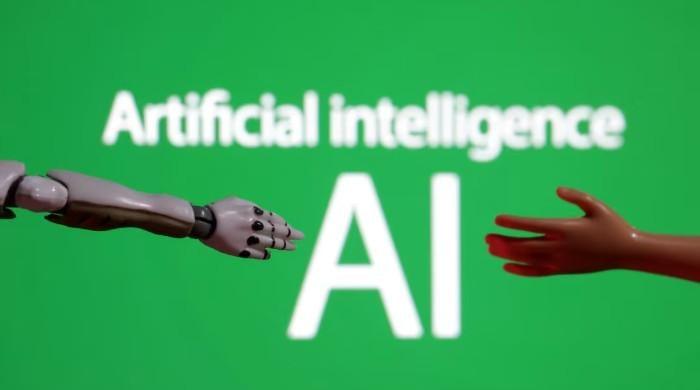Paris: Economic countries and blocks around the world are at different stages of artificial intelligence regulation, from a “far West” relating to the United States to very complex rules of the European Union.
Here are some key points concerning the regulations in the major jurisdictions, before the Paris IA summit on February 10 to 11.
UNITED STATES
Return president Donald Trump last month canceled Joe Biden’s decree in October 2023 on the supervision of the AI.
Large voluntary, it took great AI developers such as OPENAI to share security and vital information assessments with the federal government.
Supported by major technological companies, it aimed to protect privacy and prevent violations of civil rights, and called for guarantees on national security.
At home for the best developers, the United States now has no official AI directive – although certain existing privacy protections are still applied.
Under Trump, the United States “resumed its cowboy hat, it’s a full Wild West,” said Yael Cohen-Hadria, digital lawyer at Consultancy Ey.
The administration has indeed declared that “we no longer make this law … We define all our algorithms in progress and we go,” she added.
China
The Chinese government is still developing an official generative AI law.
A set of “provisional measures” requires that AI respects personal and commercial interests, does not use personal information without consent, image signals and videos generated by AI and protects physical and mental health users.
The AI must also “adhere to basic socialist values” – with strong language against AI generating content threatening the communist party leading or national security of China.
Deepseek, whose model R1 frugal but powerful shocked the world last month, is an example, resisting questions on President Xi Jinping or on the 1989 crushing of pro-democracy demonstrations in Tiananmen Square.
While regulating business closely, in particular foreigners, the Chinese government will agree with “strong exceptions” to its own rules, predicted Cohen-Hadria.
European Union
Unlike the United States and China, “the ethical philosophy of respect for citizens is at the heart of European regulations,” said Cohen-Hadria.
“Everyone has its share of responsibility, the supplier, the one who deploys (AI), even the end consumer.”
The most directly concerning AI, the “AI Act” adopted in March 2024 – some provisions apply from this week – is the most complete regulations in the world.
The use of AI for predictive police based on profiling and systems that use biometric information to deduce the race, religion or sexual orientation of an individual is prohibited.
The law adopts a risk -based approach: if a system is at high risk, a company has a stricter bonds to be fulfilled.
EU leaders have argued that clear and complete rules will make life easier for businesses.
Cohen-Hadria underlined strong protections for intellectual property and efforts to allow data to circulate more freely while granting the control of citizens.
“If I can easily access a lot of data, I can create better things faster,” she said.
India
Like China, India – co -host of the summit next week – has a law on personal data but no specific text governing AI.
The cases of damage from the generative AI were discussed with existing legislation on defamation, privacy, copyright violation and cybercrime.
New Delhi knows the value of its high-tech sector and “if they will make a law, it will be because it has a certain economic performance,” said Cohen-Hadria.
Occasional media reports and government declarations concerning AI regulation has not yet been followed by concrete action.
The best IA companies, including Perplexity, castigated the government in March 2024 when the Ministry of Computer Science published a “opinion” saying that companies would need government authorization before deploying “unreliable models “or” subtests “.
He came a few days after Google Gemini in certain responses accused Prime Minister Narendra Modi of implementing fascist policies.
Reinforced rules reinforced only called for warnings on the content generated by AI-AI.
Great Britain
The Labor Government of Center-Gauche in Great Britain included AI in its program to stimulate economic growth.
The island nation has the third sector of AI in the world after the United States and China.
Prime Minister Keir Starmer in January unveiled an “AI IA Opportunities Plan” which called for London to trace his own path.
The AI must be “tested” before being regulated, said Starmer.
“Well -designed and implemented regulations … can fuel development and adoption quickly, wide and safe from AI,” said the action plan document.
On the other hand, “ineffective regulations could retain adoption in the crucial sectors,” he added.
A consultation is underway to clarify the application of the AI law to AI, aimed at protecting the creative industry.




